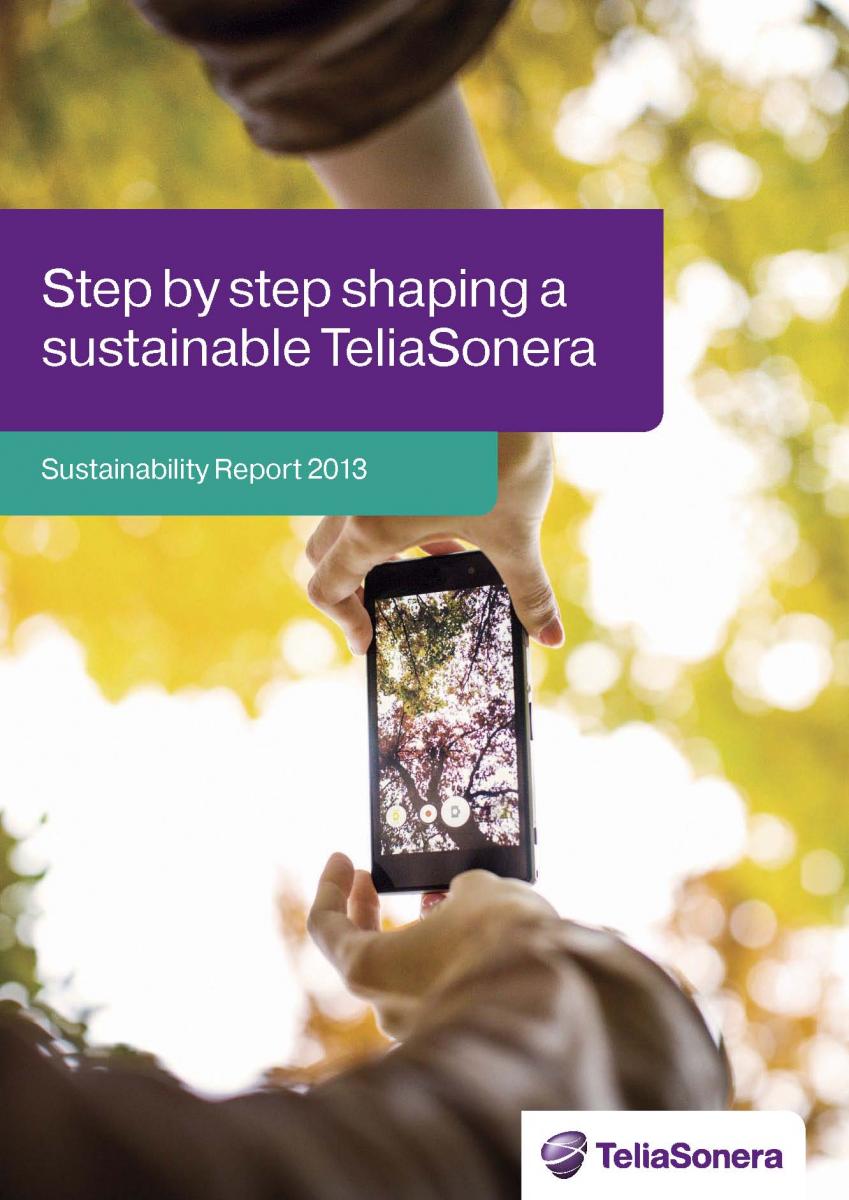Sweden’s TeliaSonera takes a bold, no-nonsense approach to its reporting, for which it deserves credit. Concrete performance progress must follow
The telecommunications industry is at the centre of the debate on the ethics, rights and responsibilities relating to data privacy and security. And TeliaSonera, Europe’s fifth largest telecoms company – offering mobile, broadband, fixed line and TV services in 17 countries across Scandinavia, Eastern Europe and Asia – is no stranger to controversy on these issues.
The Stockholm-based company is under scrutiny for its business activities in Kazakhstan and Uzbekistan. It also operates in a number of countries recognised as posing a higher risk of corruption and human rights abuse. Its 2013 sustainability report, published in 2014, gave the new chief executive and president, Johan Dennelind, an opportunity to communicate the company’s renewed commitment to ethical business and respect for human rights.
Dennelind’s statement acknowledges several failures and areas for improvement. It highlights performance on the most material issues, such as freedom of expression, data privacy, anti-bribery and corruption. With its personal and authentic voice, the statement links business performance with a clear ambition to improve the company’s corporate social responsibility track record, even going as far as mentioning an investor who left because of poor sustainability credentials.

Substance over style
Prioritising substance over style, the no-frills 50-page document shuns showy graphics and design flourishes. Such a concise, no-fluff approach is commendable. The report gets to the point and avoids grand messaging and vision statements to massage the company’s sustainability activities. The lack of group-level strategy and KPIs, which is acknowledged in the report, confirms the infancy of the company’s sustainability work. Yet, there is a clear sense of ambition and desire to move forward with the company’s key targets table, which sets out actions for 2014 and in the longer term.
The report focuses on five critical issues: freedom of expression and privacy, customer privacy, anti-corruption, supply chain sustainability and environmental responsibility. With a whole page on “criticism from stakeholders”, there is no attempt to hide behind stories of charity partnerships and employee volunteering. The case studies in the document are well selected but use the same voice as the rest of the report. By adopting a different style, tone and perspective to tell these stories, the studies would make for more inspiring and engaging reading. Yet, featuring a box with “facts about surveillance of communications” is a welcome attempt to educate readers about a complex and poorly understood topic.
The one-page summary in the first pages of the report covers each material issue and gives a short, snappy overview of what happened in the year. But it is a text-heavy page. Using a simple infographic or larger font to highlight the key aspects would give the reader an immediate understanding of what TeliaSonera has achieved and is tackling. The company reports that it has established a board-level Sustainability and Ethics Committee and a new Group Ethics and Compliance office to design and implement a more comprehensive strategy around the company’s sustainability priorities. It also adopted a new tool to evaluate suppliers’ sustainability practices and initiated anti-corruption programmes in the markets where it operates. These are welcome fledgling developments, but the company has yet to prove that it can move from policy to practice.
Content is repeated in the progress update on implementing the guiding principles of the Telecom Industry Dialogue – a group of telecommunications operators and vendors aiming to tackle human rights issues – and in responses to the Global Reporting Initiative’s (GRI)’s G3.1 framework for reporting on human rights, local community impacts and gender. Eliminating this repetition by telling one story and using icons or a key to indicate compliance with Industry Dialogue and GRI criteria would create greater impact.
Transparency
Although stakeholder engagement has evidently been a priority, there are no quotes from external stakeholders commenting on TeliaSonera’s performance in key areas. Such feedback would provide evidence of transparency and collaboration. While the report acknowledges that human rights issues and corruption are high-risk areas for TeliaSonera, it does not provide an overview of the global context and how these issues have increased in significance for stakeholders and in the media in recent years. Including information about the materiality process and how the relevance of particular issues changes over time will benefit future reports.
While Vodafone stole the headlines with its Law Enforcement Disclosure Report in 2014, TeliaSonera’s Transparency Report – separate from its sustainability study – is equally significant as it outlines the number and nature of government requests for data on customers, and commits to disclosing third-party surveillance requests twice a year. The company’s transparency and sustainability reports indicate an appetite for making quick progress and catching up, or even overtaking, more mature reporters in the telecom sector.
TeliaSonera’s sustainability report is a strong first step for a company that aims to transform its culture and overcome significant responsibility challenges. Clients, investors and partners will expect future reports to continue the refreshingly bold, transparent and credible tone set in 2013.
Snapshot
- Follows GRI? Yes – G3.1 to B+ application level
- Assured? Yes – by PwC
- Materiality analysis? Yes – materiality review conducted, but no details about process included
- Goals? Yes – long-term ambitions as interim measure until strategy developed
- Targets? Yes – actions for 2014, but no specific metrics
- Stakeholder input? No, but evidence of a lot of engagement
- Seeks feedback? Yes
- Key strengths? Focus on material issues
- Chief weakness? Repetition
- Pleasant surprise? Commitment to transparency and humble tone

